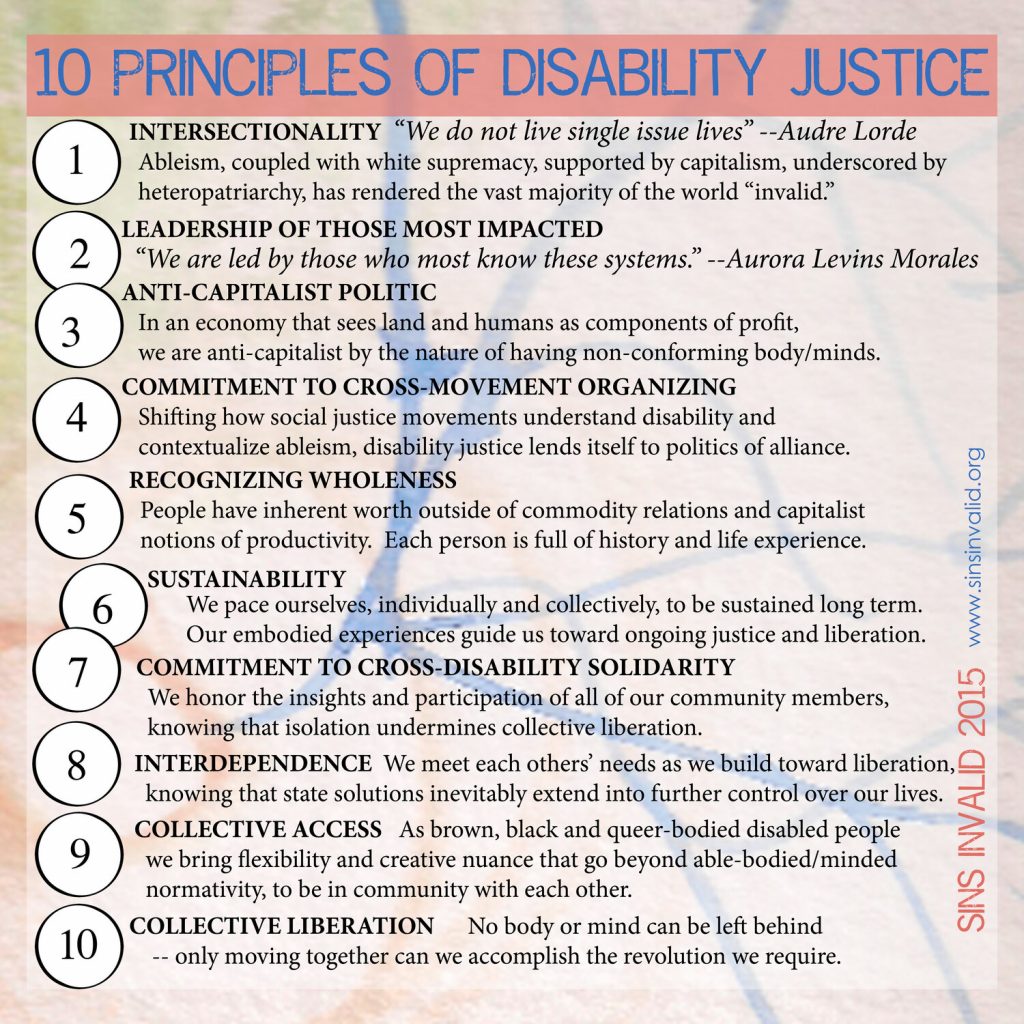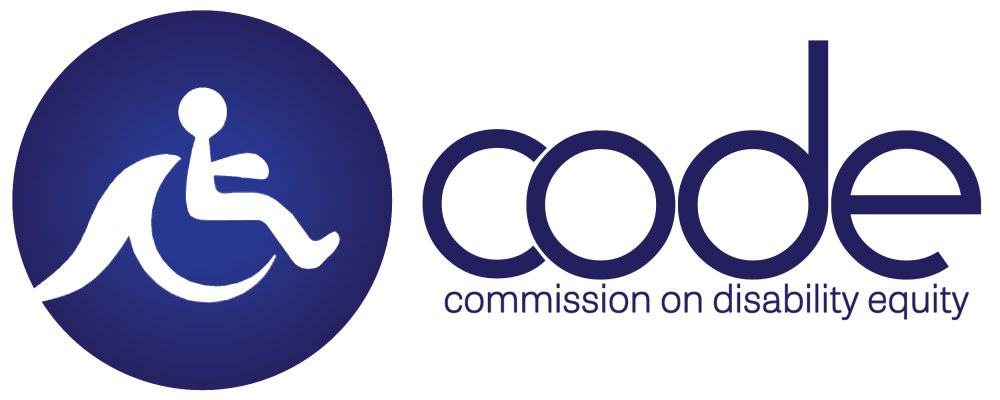This page gives an overview of the “10 Principles of Disability Justice.” This framework was developed by Sins Invalid, a disability justice-based performance project that incubates and celebrates artists with disabilities, centralizing artists of color and LGBTQ / gender-variant artists as communities who have been historically marginalized. The following image was found on their “Curriculum” webpage, linked here: https://www.sinsinvalid.org/curriculum

Click the following link to view a PDF breakdown of each of the 10 Principles of Disability Justice, https://static1.squarespace.com/static/5bed3674f8370ad8c02efd9a/t/5f1f0783916d8a179c46126d/1595869064521/10_Principles_of_DJ-2ndEd.pdf
These Principles can also be found in the “SKIN, TOOTH, AND BONE: The Basis of Movement is Our People” Disability Justice Primer, available for purchase here: https://www.sinsinvalid.org/disability-justice-primer
Highlights: The Principles that inform CODE’s new Commission Structure and Vision
The following is adapted from Marvia Cunanan’s Spring 2021 workshop on Sins Invalid’s 10 Principles of Disability Justice, and how they apply to CODE’s redesigned Commission: https://docs.google.com/presentation/d/19ivRPRTWCedbpxliVFIgB-yn6ViJIoFN9pc5gccg9u8/edit?usp=sharing
Commitment to Cross-Movement Solidarity
Shifting how social justice movements understand disability and contextualize ableism, disability justice lends itself to politics of alliance.
Through cross-movement solidarity, we create a united front. We hope that by implementing our Racial Justice Outreach Coordinator and Gender and Sexual Equity Outreach Coordinator, we can facilitate collaborative efforts, and build lasting coalitions with other communities.
Recognizing Wholeness
People have inherent worth outside of commodity relations and capitalist notions of productivity. Each person is full of history and life experiences.
Disabled people are whole people. In addition to the need to address “accessibility issues” on campus, we envision a campus with peer support networks, inclusive social programs, an “honors society” with both academic and career advising, and more! See our Overview of CODE’s 3-Pillar Plan for more.
Sustainability
We learn to pace ourselves, individually and collectively, to be sustained long-term. We value the teachings of our bodies and experiences, and use them as a critical guide and reference point.
We take a ground-up approach in identifying the needs of the disability community on our campus. We move away from the urgency of quotas, and our “progress” is marked by the ongoing development of our community-building efforts. Our student leadership makes every effort to enact principles of patience, flexibility, and care, that honors the ways that our capacities may fluctuate over time.
Interdependence
We meet each others’ needs as we build toward liberation, knowing that state solutions inevitably extend into further control over our lives.
For the liberation of our community, we offer care and support for each other. In this vein, our Commission works to organize the Disability Community Care Space, a community space for disabled students to talk openly about their experiences and connect with each other.
Collective access and Liberation
No body or mind can be left behind — only by moving together can we accomplish the revolution we require. We move together as people with mixed abilities, multiracial, multi-gendered, mixed class, across the sexual spectrum, with a vision that leaves no bodymind behind.
Our Commission’s website compiles both basic needs resources and “accessibility guides” for students in the disability community and allies to reference. For more information, see our Resources page.
